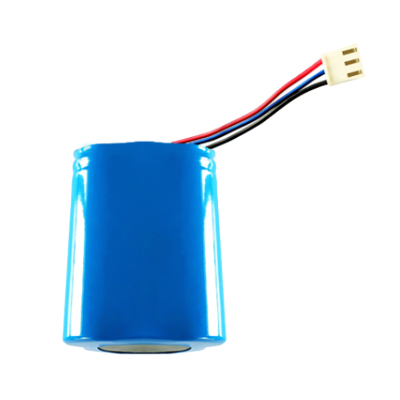Why choose lithium batteries instead of lead-acid batteries for solar street lights?
With the increasing maturity of lithium battery technology, its capacity is growing, its lifespan is extending, and its application range is expanding. The application of
lithium batteries has now been carried out in the solar street light industry. Lithium batteries are a controllable and pollution-free energy storage type of battery, and the new lithium battery solar street lights can be perfectly matched with the system. Why choose lithium batteries instead of lead-acid batteries for solar street lights? Let's take a look at the role of lithium batteries in solar street lights together?
1. Lithium batteries are small in size and light in weight, saving time and effort in installation
The preferred choice for solar street lights worldwide is generally integrated street lights. If lead-acid battery packs are used, they need to be buried underground around the lamp post and placed in a buried box. However, if lithium-ion batteries are used, they can be attached to the back of the battery panel due to their lighter weight, saving time and effort.

2. Lithium batteries are less polluting and environmentally friendly than lead-acid batteries
We all know that lead-acid batteries have a relatively short lifespan. Although they are cheap, they may need to be replaced once a year, which greatly increases environmental pollution. Moreover, lead-acid batteries themselves are more polluting than lithium-ion batteries, and if they are constantly replaced, they will continue to cause harm to the environment. Lithium batteries do not cause pollution, while lead-acid batteries are contaminated with heavy metal lead.
3. Lithium batteries are more intelligent
Nowadays, lithium batteries are becoming increasingly intelligent and their functions are becoming more and more complete. Nowadays, lithium batteries can be adjusted according to users' needs, usage duration, and other factors. Many lithium batteries can be equipped with a BMS management system, which can view the battery status in real time on the phone, and can also autonomously detect the battery's current and voltage. If there are any abnormal situations, the BMS system can automatically adjust them.
4. Lithium batteries have a longer lifespan
Lead acid batteries have relatively high annual losses and often need to be replaced every one or two years. The service life of lithium batteries is 35 years, and generally speaking, they can be guaranteed for three years. The cycle life of lead-acid batteries is around 300 times. And lithium iron phosphate batteries have a 3C cycle life of over 800 times.
5. Lithium batteries have higher safety and no memory effect
Lead acid batteries are prone to water ingress, while lithium batteries are less prone to water ingress. Moreover, lead-acid batteries have a memory effect, which occurs when charging before fully discharging, which can affect the battery's lifespan. And lithium batteries do not have memory and can be charged at any time. This way of use is safer and more reassuring. Lithium iron phosphate has undergone strict safety testing and will not explode even in severe collisions.
6. Lithium batteries have high energy density
Lithium batteries have high storage energy density, which has now reached 460-600Wh/kg, about 6-7 times that of lead-acid batteries. This will better store energy for solar street lights.
7. Lithium battery solar street lights are highly resistant to high temperatures
Solar street lights are exposed to sunlight every day, so they have higher requirements for temperature environment. The thermal peak of lithium iron phosphate batteries can reach 350-500 ℃ and can be used in environments ranging from -20 ℃ to 60 ℃.
